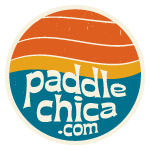A new dragon boat paddler doesn’t get many weeks in a boat until they’re asked, “But, have you ever tried outrigger?” An astute new paddler will note that dragon boating is but one fast, sprinty, splashy, corner of a very large and comprehensive paddling universe. Becoming a part of the broader universe of single-bladed paddling should be a goal of any dedicated dragon boat paddler. For many people, dragon boating is like a “gateway drug” to the paddling universe. Tweet it! A new paddler is likely to wonder, “What do I gain
Whether you are a “mouth breather,” a “heavy breather,” or a “silent breather,” the truth of the matter is: EVERYONE HAS TO BREATHE! But the question often is, “When do I breathe while I’m paddling?” Newer paddlers are often so focused on all the other complicated components of paddling that they completely neglect the importance of breathing. Yes, timing is crucial on a dragon boat, but so is oxygen intake! Breathing is the body’s way of bringing oxygen to the cells. You aren’t much use to anyone on the boat if you
If your team has recently become competitive, you are likely still working to grow and expand. On a relatively small team the pool of paddlers is not very deep and therefore can make it difficult to properly fill a race boat. Smaller teams are often faced with a dilemma. Should they use the top 20-22 paddlers available from the team, no matter what their ability? Or should they set the bar to ensure that paddlers on the race boat will have a certain amount of paddling proficiency? Which is best for your team?
Now that your team has made the decision to become more competitive, it is important to begin some type of testing in order to track the progress of paddlers and to determine the stronger paddlers who are able to compete at this new level. The former method of allowing all paddlers to participate on the race boat regardless of experience or ability will no longer work. You cannot place inexperienced or lower-level paddlers on a competitive race boat and expect to compete with the big dogs. So, how do you determine who is ready?
The decision to transition a team from a recreational, social one to a more competitive team is often a difficult one which might be met with some resistance. Paddlers who are accustomed to showing up to an occasional practice and yet still racing with the team will perhaps struggle with the idea of being asked participate in fitness testing and to commit to a more rigorous training schedule. However, paddlers who are eager to take it up a notch will be happily challenged by the new rigors. So, how does a team go about
Have you ever wondered what role attitude plays on a dragon boat? How a paddler’s attitude can contribute to or impede the success of a team? When the team is in a stressful situation, such as heading into the final heat of a race, paddlers need to have their wits about them. One bad attitude can seriously disrupt that focus. A paddler could be the most amazing athlete in the entire world, yet with a bad attitude, he or she becomes one of the most toxic parts of the team. Tweet it! Attitude is
I’ve been asked many times, “What is the best stroke?” This is an excellent question with a simple, easy answer. The best stroke is your team’s stroke. What? Each team hopefully has its own variation of a strong dragon boat stroke: it has a solid catch up front, a strong press, a quick exit, and a relaxed recovery. The variations exist in the details of the technique: things like the entry (side entry, top entry, or a hybrid), the length of the stroke, the pace of the stroke, and the method
Whether you plan to try out for your country’s national team, or you simply want to feel stronger on the boat, training sessions are essential for your paddling development. I recently had a paddler tell me, “I feel like I’m not getting any better.” I asked, “Well, how often do you practice?” She sheepishly smiled and said, “Not that often.” I see the problem. Don’t neglect the training time off the water There is a reason we have the saying, “Practice makes perfect.” Paddling, like most things in life, doesn’t improve without
Whether you have been a lifelong athlete, or have recently found yourself getting sporty, you have likely discovered that paddling has helped improve your life in countless ways. The most obvious improvements focus on the health benefits. Paddling is great cardio, makes you stronger and more fit and can even help you lose weight. But what about the other benefits? The focus, drive and determination that it requires to advance your paddling skills don’t simply stop when you get off the boat. Being an athlete develops a discipline that transfers to all aspects of your
Next survey: Why do you dragon boat? I’d love to hear what brought you to dragon boating and what keeps you paddling year after year. Please take a minute to fill out this short, five-question survey: Why Do You Dragon Boat? I look forward to reading your answers! Thank you in advance for taking the time to participate.

